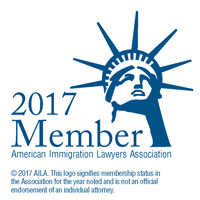What is public charge?
The public charge rule is a ground of inadmissibility. A person could be denied a green card, visa, or admission into the United States.
United States Citizenship and Immigration Services (USCIS) define “Public Charge” as an immigrant who is likely to become “primarily dependent on the government for subsistence, as demonstrated by either the receipt of public cash assistance for income maintenance or institutionalization for long-term care at government expense.”
Public charge exception and consideration
Individuals applying for admission to the United States or adjustment of status are subject to the public charge ground of inadmissibility unless they fall into categories that are exempt from public charge or are not subject to this ground of inadmissibility.

As per USCIS, the final rule applies to two types of applicants:
- Applicants for admission or adjustment of status to that of a lawful permanent resident (such applicants are subject to the rule’s public charge ground of inadmissibility unless Congress has exempted them from this ground)
- Applicants for extension of non-immigrant stay or change of nonimmigrant status (such applicants are subject to the rule’s public benefit condition unless the nonimmigrant classification is exempted by law or regulation from ;the public charge ground of inadmissibility)
The government has made certain exemptions to the public charge ground for inadmissibility including refugees, asylees, and certain T and U nonimmigrant visa applicants, certain self-petitioners under the violence against women act.
What factors are considered while determining public charge inadmissibility?
A person seeking admission to the United States must fill a sufficient form I-864 or Form I-864EZ, when required. Here are the factors that are considered while determining public charge inadmissibility-
- Age, Health and Family status;
- Assets, resources, and financial status;
- Education and skills;
- Prospective immigration status;
- Expected period of admission; and
- Sufficient Affidavit of Support Under Section 213A of the INA, Form I-864 or Form I-864EZ, when required under section 212(a)(4)(C) or (D) of the INA, 8 U.S.C. 1182(a)(4)(C) or (D).
What things to keep in mind for not getting rejected under public charge?
- Filling out the right form
- Getting health insurance
- Acquiring professional skills
- Get help with your application
If you submit an application and the government rejects it for public charge reasons, they will not refund your filing fees. You can get help for immigration attorney to reduce the risk of public charge and prepare your immigration paperwork carefully.



